最後の日のワークショップには、通訳に日本🇯🇵大使館の女性
が来て下さいました。
が来て下さいました。
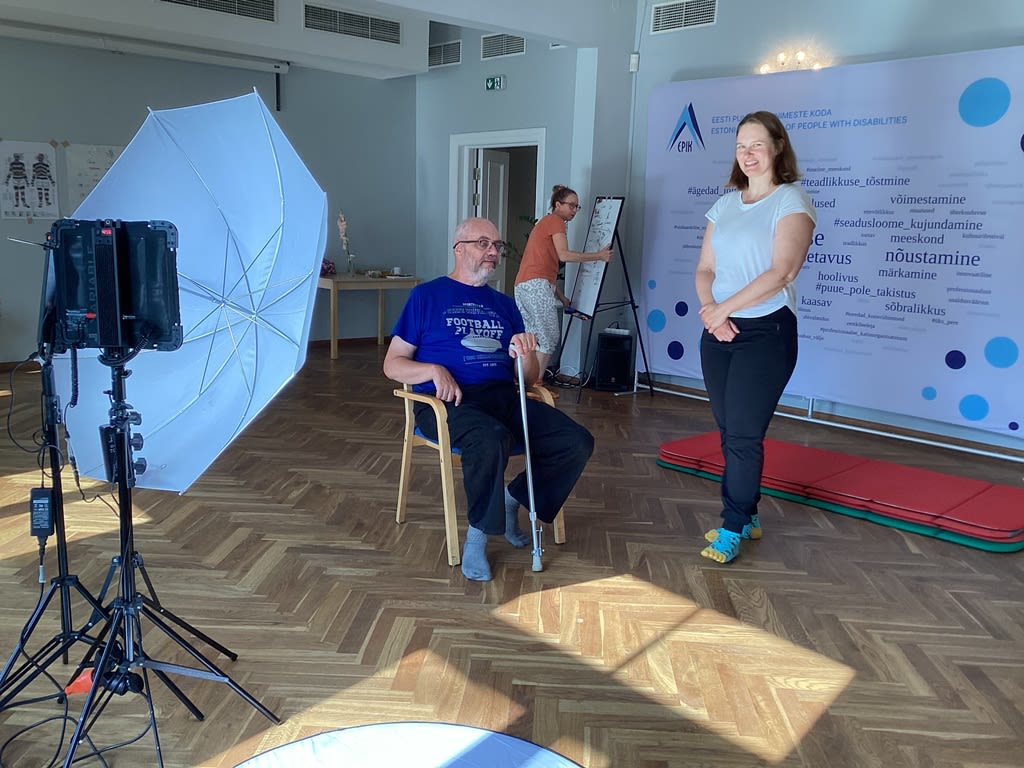
日本に1年間留学していたそうで、日本語がとても上手でした。
ドキュメンタリー通訳もして頂き、ありがとうございました。
これで仕事が終わったあ〜と、思っていたら今日は、旧市街の
撮影が入り、朝から夕方まで撮影されました。

この5年でタリンのダウンタウンも様変わり、文明国並みに
街並みが整っていて、びっくりしました。
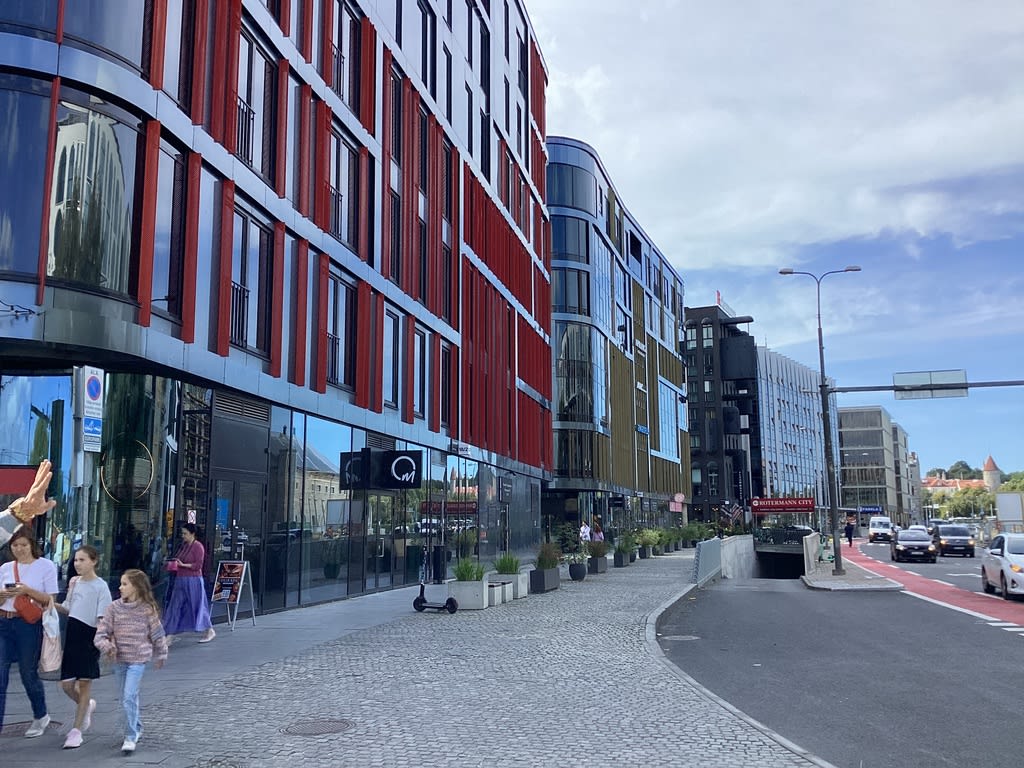
日本地図を広げてドキュメンタリースタッフと、ミーティング
しました。
企画書をきちんと作ってきていて、システム世界一のお国柄が
現れていました。

テレサは国営のTV局で働いていて、仕事が出来るディユレクター
ですね。
私からの質問にもテキパキ答えてくれました。
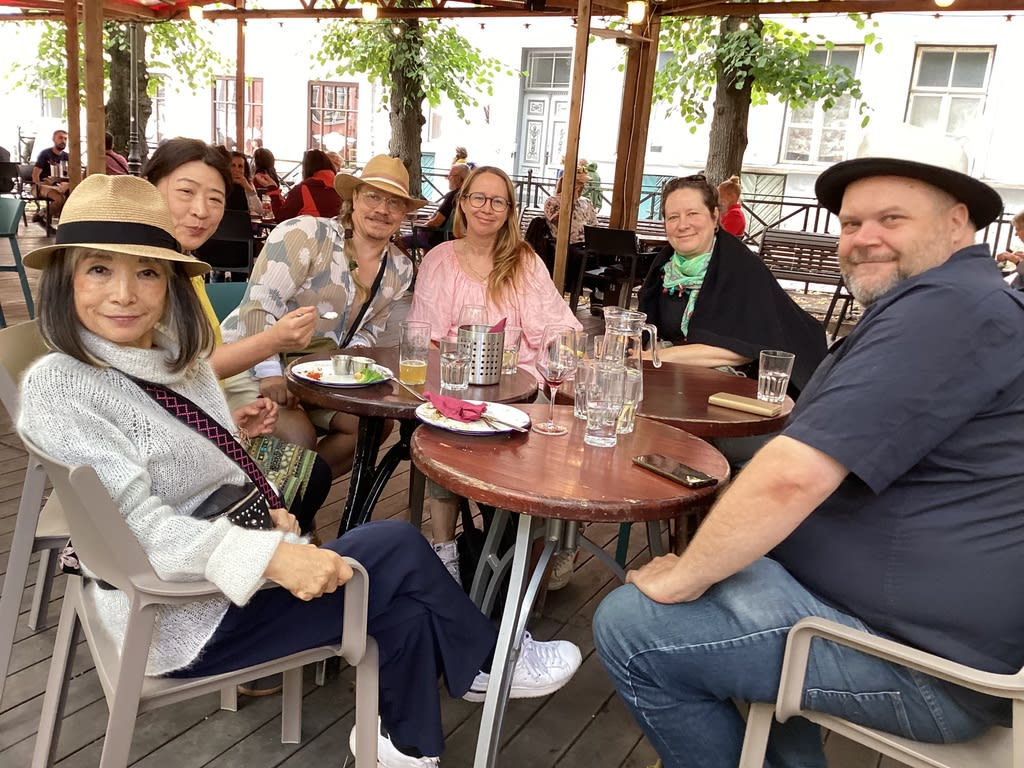
ドキュメンタリーはどのようにして売り出すのですか?とお聞き
しました。
TV局関係に売り込む事大事です。
お祭りの時に上映する。
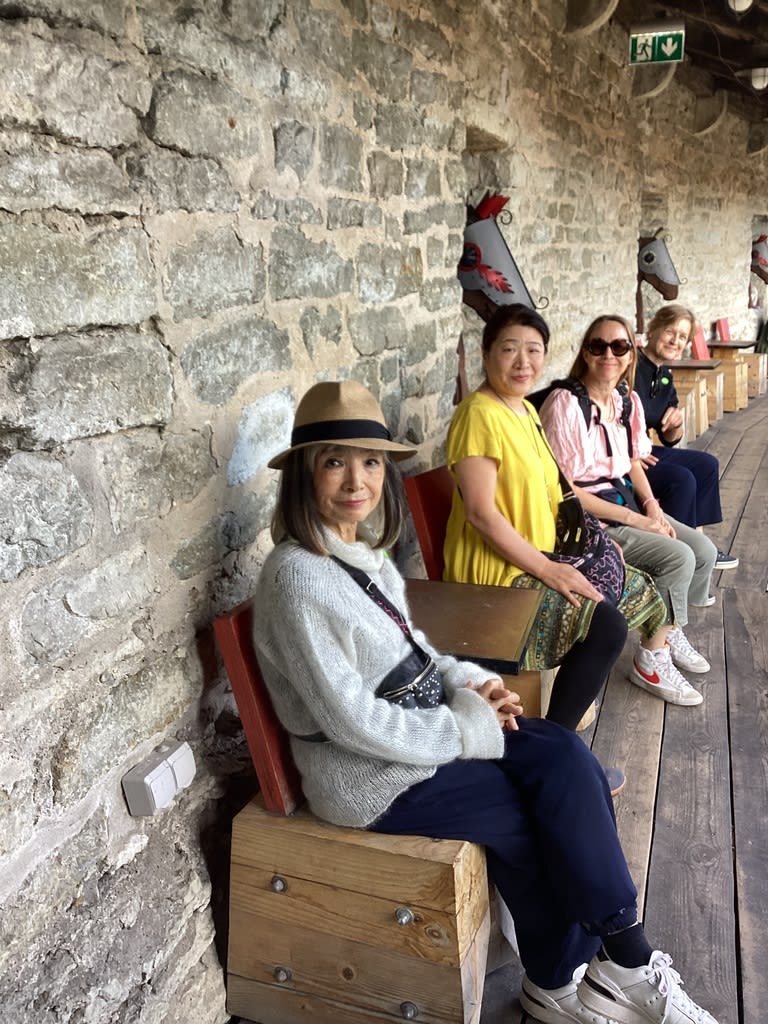
DVD 作成などですね。
On the last day of the workshop, a woman from the Japanese Embassy came to act as an interpreter.
She had studied in Japan for a year, and her Japanese was very good.
Thank you for interpreting for the documentary.
I thought my work was done, but today we had to shoot in the old town, and we filmed from morning to evening.
Downtown Tallinn has changed a lot in the last five years, and I was surprised to see that the cityscape is as well-organized as in a civilized country.
I had a meeting with the documentary staff, with a map of Japan spread out.
They had prepared a proper proposal, and the national character of the country with the best system in the world was apparent.
Teresa works for a national TV station, and is a director who is good at her job.
She answered my questions promptly.
I asked her, "How do you sell a documentary?"
It's important to sell it to TV stations.
Screen it at a festival.
Create a DVD, etc.




















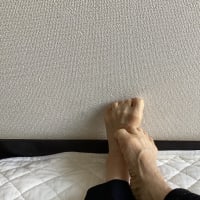





※コメント投稿者のブログIDはブログ作成者のみに通知されます